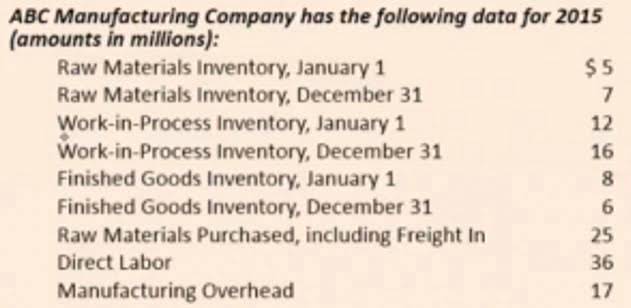COVID-19 and the accounting profession: The impact, the challenges, the future Sprott School of Business

Just as it’s important not to lessen hardships faced, it’s also important to recognize how we have evolved for the better. The accounting profession can use lessons from the past year to continue to flourish this year and well beyond. This is our defining moment, to move our profession from being essential to indispensable. It’s no secret the pandemic pushed many organizations to fast-track their digital transformation.
- Once they were forced to work from home, he said, that changed quickly.
- Some accountants listed the government help (such as the PPP loans) as “extremely helpful”; others said that in the beginning, the rules concerning these programs were complicated and the processes were obscure.
- Management is required to disclose risks and uncertainties that could significantly affect (1) amounts reported in the financial statements in the near term or (2) the near-term functioning of the entity.
- For over a decade, the Digital CPA Conference has been the premier event for forward-thinking accounting professionals who are ready to shape the future of the profession.
- Review existing engagement letters to ensure they continue to accurately reflect the agreement between the firm and the client.
Infographic: Tax and accounting technology trends for 2…
Since auditors could no longer make on-site visits, they had to adapt. When asked if there had been any changes to their office set-up, respondents answered in a variety of ways. Some stated that their firms moved staff out of cubicles and into individual offices for social distancing. Others said they plan to downsize office space due to a reduced need for physical space. One firm was able to negotiate a lower rent with its landlord for lease renewal. In the United States, the decision to formally test any animal for SARS-CoV-2 is made using a one health approach.
How the Accounting Industry is Evolving in the Age of Coronavirus

For over a decade, the Digital CPA Conference has been the premier event for forward-thinking accounting professionals who are ready to shape the future of the profession. Technology is helping firms continue to build out their advisory practices, said Jim Bourke, CPA/CFF/CITP, CGMA, managing director, advisory services with Withum, who works out of the firm’s Red Bank, N.J., office. “I believe in 2023 we will continue to see firms get their technology house in order with best-of-breed technologies from around the globe,” he said. Declining capacity and expanded services are stressing day-to-day workloads at many accounting firms.

The trends that will affect CPAs in 2023
- Recruiting and retaining talent will likely remain a big challenge for many CPA firms moving forward.
- Although remote services were relatively uncommon until the pandemic tsunami, the pattern of offshore accounting has been caught up in the surge, and the entire market is being swept by the current to distant shores—and fast.
- It’s not just the tax and accounting profession that has innovated; businesses across industries are using this crisis to breed innovation.
- Be sure to include a statement that the client is responsible for providing complete and accurate information to the CPA.
- At the firm’s offices, Bourke said, workers have two or three monitors and docking stations for their laptops.
The accounting industry can use lessons from the past year to continue to flourish this next year and well beyond. This is our defining moment, to move our industry from being essential to indispensable. As we reach the one year anniversary of stay-at-home mandates across the nation, it’s important to reflect on how COVID-19 has changed the accounting and tax industry as we knew it.
Practice Innovations: Using succession planning to ensure your law firm’s sustainable future
It is also a critical moment for the profession to nurture existing talent and attract new talent. We must achieve this progress collectively, with clear and measurable goals. Deloitte AG is an affiliate of Deloitte NSE LLP, a member firm of Deloitte Touche Tohmatsu Limited, a UK private company limited by guarantee (“DTTL”).
Working remotely
It has also forced people to reimagine and reshape how they view the modern-day accountant. From being someone who simply took care of the business’s finances, many accountancy firms are now strategic to the overall strategy and direction of a business. Many like ourselves adopting the Profit First methodology in the heart of our business philosophy. As the pandemic and what comes after continues to transform the accounting profession, CPAs need https://www.bookstime.com/ a new mindset, skill set, and tool set to thrive, says Tom Hood, executive vice president of the Association of International Certified Professional Accountants (AICPA). This is an extraordinary time for the world, our country, and the profession. While the full impact of COVID-19 is unknown and uncertain, what is certain is the need for CPAs to be vigilant and informed and to be flexible and adaptable in their response to these changing times.
By the beginning of 2020, new technologies like cloud platforms, robotic processes and automation were already saving firms time and money. Long before COVID-19 made its presence felt, changes were already afoot across the accounting industry. New technologies and cultural shifts were taking shape, with client demands, efficiencies and industry trends fuelling the transformation. In a report intended to make IT leaders more resilient while reimagining the future of work, Deloitte Canada makes several recommendations in this vein. These include adopting a cloud-first approach, making virtual collaboration the default and investing in remote-work capabilities.
Crises inevitably demand difficult decisions be made, yet the preferred conditions for making such decisions—time to deliberate, a clear sense of focus—are in short supply. Countless small business owners, CEOs, government leaders and more confronted this reality in 2020. For many of them, professional accountants were there as trusted advisors when there was no semblance of certainty. We need to invest in how to use technology as a way to transform our business to be more effective, efficient, and to scale better. With many accountants now working full time from home, or under hybrid conditions, the geographical location of clients has become less important.

Clearly outline that the client is responsible for making all decisions, whether it’s addressing the advice and recommendations provided by the CPA or selecting the tax return position to be taken on an amended return. Be sure to include a statement that the how has covid affected the accounting profession client is responsible for providing complete and accurate information to the CPA. Accounting Today is a leading provider of online business news for the accounting community, offering breaking news, in-depth features, and a host of resources and services.
